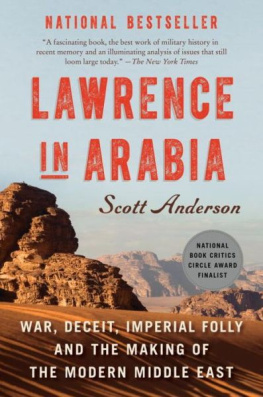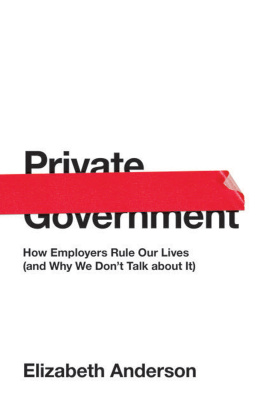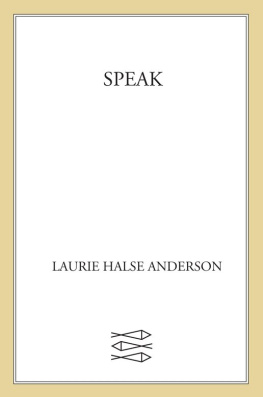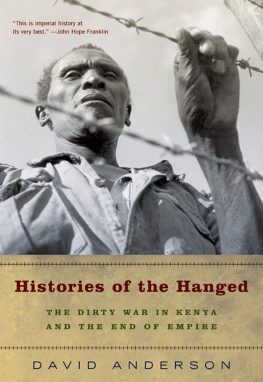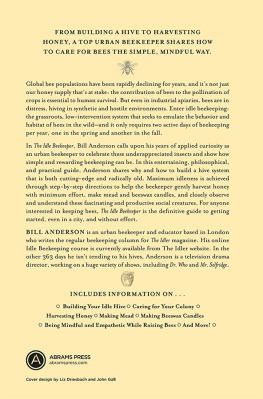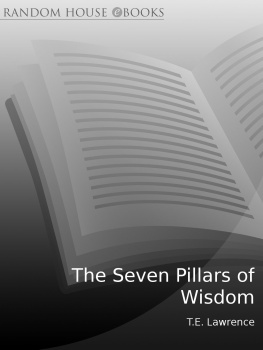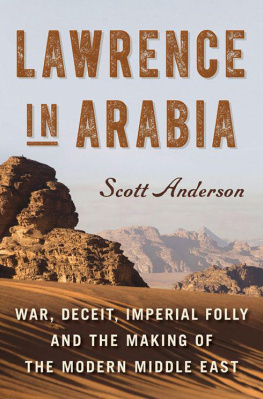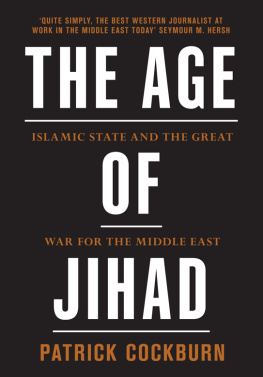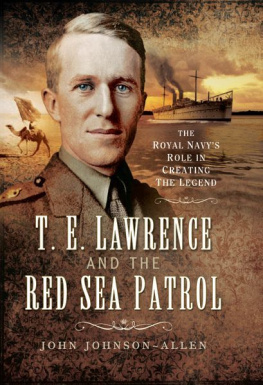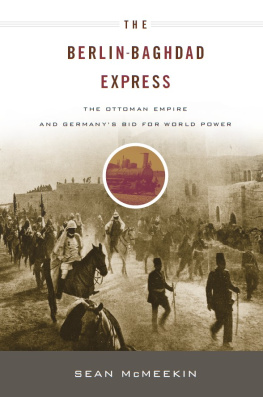Anderson - Lawrence in Arabia: War, Deceit, Imperial Folly and the Making of the Modern Middle East
Here you can read online Anderson - Lawrence in Arabia: War, Deceit, Imperial Folly and the Making of the Modern Middle East full text of the book (entire story) in english for free. Download pdf and epub, get meaning, cover and reviews about this ebook. year: 2014;2018, publisher: Knopf Doubleday Publishing Group, genre: Detective and thriller. Description of the work, (preface) as well as reviews are available. Best literature library LitArk.com created for fans of good reading and offers a wide selection of genres:
Romance novel
Science fiction
Adventure
Detective
Science
History
Home and family
Prose
Art
Politics
Computer
Non-fiction
Religion
Business
Children
Humor
Choose a favorite category and find really read worthwhile books. Enjoy immersion in the world of imagination, feel the emotions of the characters or learn something new for yourself, make an fascinating discovery.
- Book:Lawrence in Arabia: War, Deceit, Imperial Folly and the Making of the Modern Middle East
- Author:
- Publisher:Knopf Doubleday Publishing Group
- Genre:
- Year:2014;2018
- Rating:4 / 5
- Favourites:Add to favourites
- Your mark:
Lawrence in Arabia: War, Deceit, Imperial Folly and the Making of the Modern Middle East: summary, description and annotation
We offer to read an annotation, description, summary or preface (depends on what the author of the book "Lawrence in Arabia: War, Deceit, Imperial Folly and the Making of the Modern Middle East" wrote himself). If you haven't found the necessary information about the book — write in the comments, we will try to find it.
NAMED ONE OF THE BEST BOOKS OF THE YEAR BY
New York TimesChristian Science Monitor NPR Seattle TimesSt. Louis Dispatch
National Book Critics Circle Finalist American Library Association Notable Book
A thrilling and revelatory narrative of one of the most epic and consequential periods in 20th century history the Arab Revolt and the secret great game to control the Middle East
The Arab Revolt against the Turks in World War One was, in the words of T.E. Lawrence, a sideshow of a sideshow. Amidst the slaughter in European trenches, the Western combatants paid scant attention to the Middle Eastern theater. As a result, the conflict was shaped to a remarkable degree by a small handful of adventurers and low-level officers far removed from the corridors of power.
Curt Prfer was an effete academic attached to the German embassy in Cairo, whose clandestine role was to foment Islamic jihad against British rule. Aaron Aaronsohn was a renowned agronomist and committed Zionist who gained the trust of the Ottoman governor of Syria. William Yale was the fallen scion of the American aristocracy, who traveled the Ottoman Empire on behalf of Standard Oil, dissembling to the Turks in order gain valuable oil concessions. At the center of it all was Lawrence. In early 1914 he was an archaeologist excavating ruins in the sands of Syria; by 1917 he was the most romantic figure of World War One, battling both the enemy and his own government to bring about the vision he had for the Arab people.
The intertwined paths of these four men the schemes they put in place, the battles they fought, the betrayals they endured and committed mirror the grandeur, intrigue and tragedy of the war in the desert. Prfer became Germanys grand spymaster in the Middle East. Aaronsohn constructed an elaborate Jewish spy-ring in Palestine, only to have the anti-Semitic and bureaucratically-inept British first ignore and then misuse his organization, at tragic personal cost. Yale would become the only American intelligence agent in the entire Middle East while still secretly on the payroll of Standard Oil. And the enigmatic Lawrence rode into legend at the head of an Arab army, even as he waged secret war against his own nations imperial ambitions.
Based on years of intensive primary document research, LAWRENCE IN ARABIA definitively overturns received wisdom on how the modern Middle East was formed. Sweeping in its action, keen in its portraiture, acid in its condemnation of the destruction wrought by European colonial plots, this is a book that brilliantly captures the way in which the folly of the past creates the anguish of the present.
Library : Science Fiction
Formats : EPUB
ISBN : 9780307476418
Anderson: author's other books
Who wrote Lawrence in Arabia: War, Deceit, Imperial Folly and the Making of the Modern Middle East? Find out the surname, the name of the author of the book and a list of all author's works by series.

